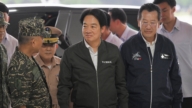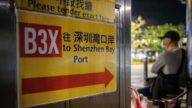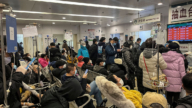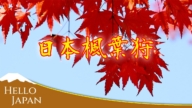【新唐人2013年06月05日訊】中共解放軍副總參謀長戚建國,日前在新加坡召開的亞洲安全會議上表示,東海和南海問題現在都不具備徹底解決的條件,包括釣魚島,應該擱置爭議,留給後人解決爭端。但日本內閣官房長官菅義偉回應說:「不存在應該擱置的問題」。那麼,為甚麼半年前,中共在釣魚島開展海空立體巡航,中、日兩方因釣魚島主權問題戰爭一觸即發,現在突然間,中共又為甚麼提擱置釣魚島爭議呢?請看專家分析。
2號,中共解放軍副總參謀長戚建國在亞洲安全會議上提出﹕中國與各國包括釣魚島問題在內的領土糾紛,可以擱置爭議,留給後人解決。戚建國還拿出鄧小平當年也有相似言論,為自己的說法做註腳。
據《鄧小平文選》第三卷記載,1978年,鄧小平訪問日本,當記者提出釣魚島問題時,鄧小平回答,這個問題可以把它放一下,留下一代解決。
但,日本內閣官房長官 菅義偉回應說﹕日本並沒有與中國達成「擱置或者維持現狀」的協議,根本不存在應該擱置的問題。
半年前,中共對釣魚島問題反映激烈,煽動民間進行各種遊行和抗議,軍方和媒體密集製造輿論,給人感覺中日戰爭一觸即發。
時政評論家藍述指出,當時,中國國內,因為中共在交接班的過程中,各派廝殺極其激烈,為了贏得軍隊內部鷹派的支持,中共第五代核心不得不做出要打仗的樣子。
時政評論家藍述:「現在第五代接班後,很大程度上掌控了軍隊,權力的換屆危機基本上過去了,就回到了它的利益的考慮上,希望和日本維持一個穩定的關係,這對中共目前面臨的經濟形勢,去解決它的經濟問題是有好處的。」
大陸自由撰稿人劉逸明認為,戚建國是在代表官方表態。劉逸明說,中共對內殘酷鎮壓自己的同胞,對外表現軟弱,把釣魚島留給下一代解決,是中共真實的想法。
大陸自由撰稿人劉逸明:「現在中國國內存在著很多問題因素,他們非常擔憂,一旦跟日本開戰,兩邊都沒辦法安置好,一個是戰爭沒辦法取勝,再就是中國國內可能出現內亂。」
藍述:「日本看清了中共的底牌,在外交上中共在周邊地區,太平洋地區處於困境,在內政上,中共面臨著激烈的官民矛盾,它為了維持自己的穩定,它不得不做出某些讓步,所以日本呢,它就要你現在解決。」
藍述分析指出,文革中,中共把中國的經濟拖向了毀滅的邊緣,為了能延續中共的統治,以鄧小平為首的第二代中共領導人,急需國外的資金來拯救中國經濟,為中共執政合法性提供籌碼,所以急切的表達﹕中共不會和日本計較釣魚島。
而早在50年代初,中共剛剛上臺,周邊需要穩定,當時的國務院總理兼外交部長周恩來,直接發表聲明﹕釣魚島屬於日本。
藍述說,中共這次在釣魚島上的表態,和前面幾代沒有區別,領土問題依舊是中共調節政權穩定的砝碼,中共希望轉移國內矛盾時,可以隨時藉領土問題發揮,轉移民眾視線,需要國外支持或需要周邊穩定時,中共又可以毫不猶豫的放棄國家領土。
1999年年底,前中共黨魁江澤民和俄羅斯總統葉利欽秘密簽定《中俄全面勘分邊界條約》,將144萬平方公里的中國領土拱手送給了俄國。這次簽約,只在喉舌媒體《人民日報》作了簡短報導,沒有提及條約內容,令人懷疑有交易內幕。
採訪編輯/劉惠 後製/鍾元
Leave Diaoyu Islands Disputes?
Chinese Communist Party (CCP) Deputy Chief of
Staff of the People’s Liberation Army (PLA), Qi Jianguo,
said at a recent security conference in Singapore that
East China Sea, South China Sea and
Diaoyu (Senkaku) Islands issues can’t be resolved.
He felt that disputes should be shelved and
left to future generations.
Japan’s Chief Cabinet Secretary Jian Yiwei responded:
“The issue should not be shelved."
Six months ago, the CCP carried out a campaign
on air and sea to the Diaoyu Islands.
Due to the issue of sovereignty over the Diaoyu Islands,
a war is imminent between China and Japan.
Now all of a sudden, why does the CCP want to step aside
from the dispute? Let’s look at expert analysis:
On June 2, PLA Deputy Chief of Staff Qi Jianguo said that
territorial disputes between China and other countries,
including the Diaoyu (Senkaku) Islands issue,
can be shelved, left to the future generations.
Qi Jianguo has come up with similar remarks from
Deng Xiaoping as a footnote.
According to the Selected Works of Deng Xiaoping,
3rd volume, in 1978, Deng Xiaoping visited Japan.
When a reporter asked about the Diaoyu Islands issue,
Deng said the question can be put aside, leaving it to future generations.
However, Japan’s Chief Cabinet Secretary,
Jian Yiwei, said that
Japan did not reach an agreement with China on holding or
maintaining the status quo so the issue should not be shelved.
Six months ago, the CCP responded fiercely on the Diaoyu
Islands issue, inciting various civil demonstrations and protests.
The military and the media intensively made up public opinions,
giving the impression that a Sino-Japanese war was imminent.
Political critic Lan Shu said, the CCP was in the process
of changing shifts.
So the fighting between factions was extremely fierce
to win the support of the hawks within the army.
The fifth-generation core had to make
a gesture towards battle.
Lan Shu: “After the succession of the fifth generation,
they controlled the army.
The crisis of power changes had gone, so it returned
to considerations on interests, hoping to maintain a stable relationship with Japan.
Under the current economic situation,
it is good for the CCP to solve its economic problems."
A freelance writer Liu Yiming in China believes that
Qi Jianguo is a representative of the official position.
Liu Yiming said that the CCP brutally suppresses their
compatriots domestically, but is weak to outside forces.
It is the CCP’s real thoughts to leave the Diaoyu Islands
disputes to the next generation.
A freelance writer Liu Yiming in China:
“Now there are many problems in China.
The CCP are very worried that with a war started against
Japan, there is no way to settle both sides.
One is that there is no way to win the war, and
the other is that there may be civil unrest in China."
Lan Shu: “Japan has seen through the CCP. In diplomacy,
the CCP is in distress in the surrounding area and Pacific region.
In domestic affairs, the CCP faces fierce conflicts with citizens;
To maintain its own stability, it had to make some
concessions. But Japan wants to resolve it now."
Lan Shu analyzed that in the Cultural Revolution, the CCP
had dragged China’s economy to the edge of destruction.
To extend the rule of the CCP, the second-generation
of Communist leaders led by Deng Xiaoping urgently
needed foreign capital to rescue the Chinese economy,
providing weight to legitimize the power of the CCP.
So the CCP eagerly expressed that they did not care
about the Diaoyu Islands.
In the early 1950s, the CCP had just come to power,
and needed peripheral stability.
The Premier and Foreign Minister Zhou Enlai made direct
statements that the Diaoyu Islands belonged to Japan.
Lan Shu said, the CCP declared its position on Diaoyu Islands,
and it had no difference from the previous generations.
The territorial issues are still weights for
the CCP to maintain stability.
When the CCP wants to divert domestic attention,
it can play with territorial issues at any time.
When it needs foreign support or stability in surrounding
areas, the CCP won’t hesitate to abandon national territories.
At the end of 1999, the former CCP leader Jiang Zemin
and Russian President Boris Yeltsin signed a secret Sino-Russian comprehensive border treaty,
giving the 1.44 million sq. km. of Chinese territory
away to Russia.
The treaty signing was only reported briefly in
the mouthpiece media People’s Daily.
It did not mention the contents of the treaty,
which is suspected to have some inside trading.

























